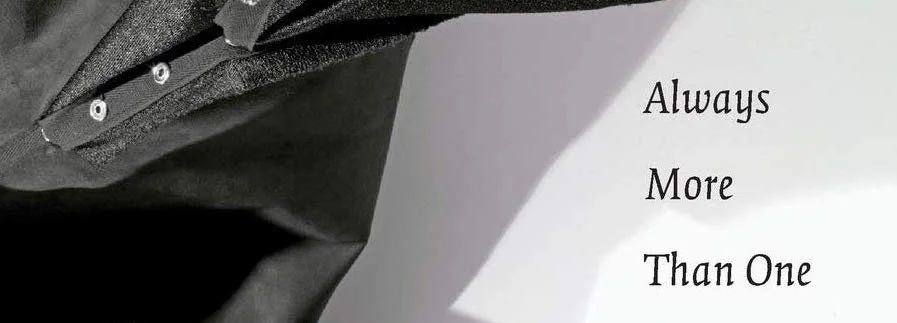Join us for an online reading group to discuss excerpts from Erin Manning’s 2012 book, Always More Than One, led by Fidget Co-Director, Megan Bridge.
With guest appearance from author, Erin Manning!
Tuesday, August 9th, 2022
7:30-9PM EDT
Free!
Online event - held on Zoom only.
For a pdf of the reading, email mijkalena@thefidget.org
Event Description:
Join us for an online reading group to discuss excerpts from Erin Manning’s 2012 book, Always More Than One, written on the intersecting topics of cultural theory, performance studies, and philosophy (more details on the book are below). Book author, Erin Manning, will be joining for a special guest appearance, creating a rare opportunity for participants to have direct access to the thinking behind the work.
The reading group will be led by Fidget Co-Director, Megan Bridge, who has done in-depth studies and written several papers about Manning’s work. The two have collaborated on multiple projects: Manning was dramaturg for Bridge’s project Dust (2015) and Bridge created choreography inside of one of Manning’s fabric art installations, Weather Patterns. Manning has previously made guest appearances for workshops, discussions, and lectures at Fidget Space.
About the book:
From Duke University Press
In Always More Than One, the philosopher, visual artist, and dancer Erin Manning explores the concept of the "more than human" in the context of movement, perception, and experience. Working from Whitehead's process philosophy and Simondon's theory of individuation, she extends the concepts of movement and relation developed in her earlier work toward the notion of "choreographic thinking." Here, she uses choreographic thinking to explore a mode of perception prior to the settling of experience into established categories.
Manning connects this to the concept of "autistic perception," described by autistics as the awareness of a relational field prior to the so-called neurotypical tendency to "chunk" experience into predetermined subjects and objects. Autistics explain that, rather than immediately distinguishing objects—such as chairs and tables and humans—from one another on entering a given environment, they experience the environment as gradually taking form. Manning maintains that this mode of awareness underlies all perception. What we perceive is never first a subject or an object, but an ecology. From this vantage point, she proposes that we consider an ecological politics where movement and relation take precedence over predefined categories, such as the neurotypical and the neurodiverse, or the human and the nonhuman. What would it mean to embrace an ecological politics of collective individuation?
About Erin Manning:
Erin Manning is a professor in the Faculty of Fine Arts at Concordia University (Montreal, Canada). She is also the founder of SenseLab (www.senselab.ca), a laboratory that explores the intersections between art practice and philosophy through the matrix of the sensing body in movement. Current art projects are focused around the concept of minor gestures in relation to colour and movement. Art exhibitions include the Sydney and Moscow Biennales, Glasshouse (New York), Vancouver Art Museum, McCord Museum (Montreal) and House of World Cultures (Berlin) and Galateca Gallery (Bucarest). Publications include For a Pragmatics of the Useless (Duke UP, forthcoming), The Minor Gesture (Duke UP, 2016), Always More Than One: Individuation’s Dance (Duke UP, 2013), Relationscapes: Movement, Art, Philosophy (Cambridge, Mass.: MIT Press, 2009) and, with Brian Massumi, Thought in the Act: Passages in the Ecology of Experience (Minnesota UP, 2014)
For more about Erin: http://erinmovement.com/
Funding has been provided by PA Humanities and the National Endowment for the Humanities as part of the American Rescue Plan Act of 2021.



